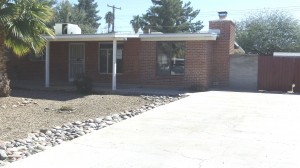The past several months I have been searching for another investment/rental property to purchase, and have so far come up empty. Several times I found one, only to have it sold before I got my bid in. Today, I got my bid in on the above pictured foreclosure house. There are four bids on it and the bank will select one of us sometime this week.
The house is 3 bedroom, 1 bath, 1,400 sq ft, property in a nice neighborhood. The price is $53,000. It needs somewhere between $5,000 – $10,000 work to bring it up to rental condition, e.g., replacing sheet rock, electrical work, roof work, and flooring. It sold for $149,000 in 2006. I should be able to rent it for around $800/month. I’ll purchase with cash, if I get the house.
I would have preferred 2 bathrooms, but the house is in a good location and is otherwise a pretty good deal. I know several people with children who only have one bathroom and it works for them, even though I’m used to two.
Now is the time to take action
If you are just sitting on the fence, now is an opportune time to get into a investment house.
Of course, you must conduct a good inspection of the property either before you make the offer, or during the 7 to 10 day inspection period after your bid is accepted. Usually there are is no history of the property for you to examine, on foreclosures. It’s sold as is.
My main motivation is to that I can fairly inexpensively purchase a rental house, and it will provide me with an unusually large stream of income. I have other rental houses, but this new one will produce much more revenue because most of my income on the other properties goes to pay the mortgage company. Since I’m able to pay cash, this time all the revenue goes to me.
Rentals better than pensions
The great advantage of owning real estate property over having a pension is that your pension is fixed and what you get when you start it, is all you will ever get. For rental houses, the amount you receive from tenants goes up over time, with inflation, and you can never use it up.
The double win
It’s like being able to bet your money in Las Vegas, but then you get all the money that you lost back again when you leave. You get the monthly payments, like a pension. But, if you ever want to sell your investment house, you get the entire amount that you spent back again, and usually a lot more than that.
OTHER BLOG ARTICLES:
I encourage you to check out the insightful article How do you handle the whining tenants? over at landlordinvestor.com.







